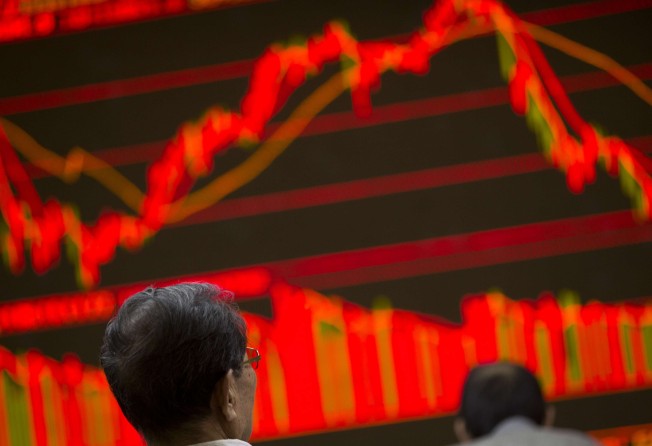Why no one is taking China’s promise to ease overseas stock investments seriously

Beijing’s promise of greater freedom to financial institutions access overseas equities, as part of efforts to liberalise the stock market and facilitate cross-border trading, has failed to elicit much enthusiasm as investors sense a shift of priorities of the regulators in a volatile market environment.
Pan Gongsheng, a deputy central bank governor and the head of the State Administration of Foreign Exchange (SAFE), last week said the qualified domestic institutional investor (QDII) scheme was being reviewed and the rules governing it would be relaxed, but did not elaborate.
The statement, made during the annual session of the National People’s Congress, was a rare public announcement by a senior financial regulator about the link between Chinese and overseas stock markets amid growing doubts about Beijing’s commitment to market reforms.
Battered by an unbridled capital exodus and currency volatility, China’s financial regulators have suspended new quotas for direct domestic funds to buy foreign equity.
The QDII scheme allows banks and mutual funds to raise capital from mainland Chinese investors before converting them into foreign currencies to buy shares abroad under a quota system. It is one of the available official channels for Chinese investors keen on exposure to foreign stocks, alongside the qualified domestic limited partner (QDLP) scheme, under which foreign hedge funds raise funds from Chinese investors to buy overseas shares.
QDII investors have not received additional quota since April 2014 while QDLP has been similarly put on ice by the regulators, with no additional quota granted.
The qualified domestic individual investor (QDII2) scheme allowing Chinese residents to directly buy shares in Hong Kong has yet to take effect, been similarly put on hold.
Hong Kong-listed shares’ huge premium to their China-listed A-shares and the increasing demand from mainland Chinese for converting their yuan assets into foreign currencies have caused nearly 20 QDII funds to suspend subscriptions recently after using up the foreign-exchange quota.
Two market sources said the SAFE would scrap the quota system for QDIIs, giving institutions greater freedom in raising funds with no ceiling on the fund size.
Earlier, a QDII fund would be granted a quota before raising money from Chinese investors, and would have to stop raising funds if the proceeds exceeded the quota.
Beijing approved a total US$90 billion QDII quota to 132 institutions.
“The rule change will be aimed at making it easier for investors to trade shares across the border,” said Pan, but offered no time frame for the policy change.
Beijing relaxed the qualified foreign institutional investor (QFII) rules last month, making it easier for eligible foreign investors in A shares to take their money out of China.
QFII funds will no longer be subject to a fixed investment quota, according to the new rules.
Pan said the pending changes on QDII rules would be similar to the relaxation of restrictions on QFIIs.
“Given the current buying craze for QDII products, additional quota distribution to fund managers is urgently needed,” said Zhou Ling, a hedge fund manager at Shanghai Shiva Investment. “Pan’s statement is no more than a verbal support, which isn’t enough to meet the need for overseas investment.”
But China’s securities regulator is likely to give priority to stability by putting a floor under the A-share market through administrative measures as stock turmoils can portend mass unrest in a country where millions of small investors stake their life savings on stocks.
The benchmark Shanghai Composite Index is down over 20 per cent so far this.
“It’s symbolic rather than substantive,” said Zhang Xiaobo, a Shanghai-based investor in QDII products on the regulators’ recent statements. “The regulator is giving empty promises and trying to divert investors’ attention from the locally listed shares.”
Tan Jialong, assistant to the chairman of private conglomerate Zendai Group in Shanghai and director of the group’s hedge fund businesses, said the central bank will not take any bold steps in liberalising cross-border capital flows right now since policymakers are more focused on reinvigorating the domestic economy.